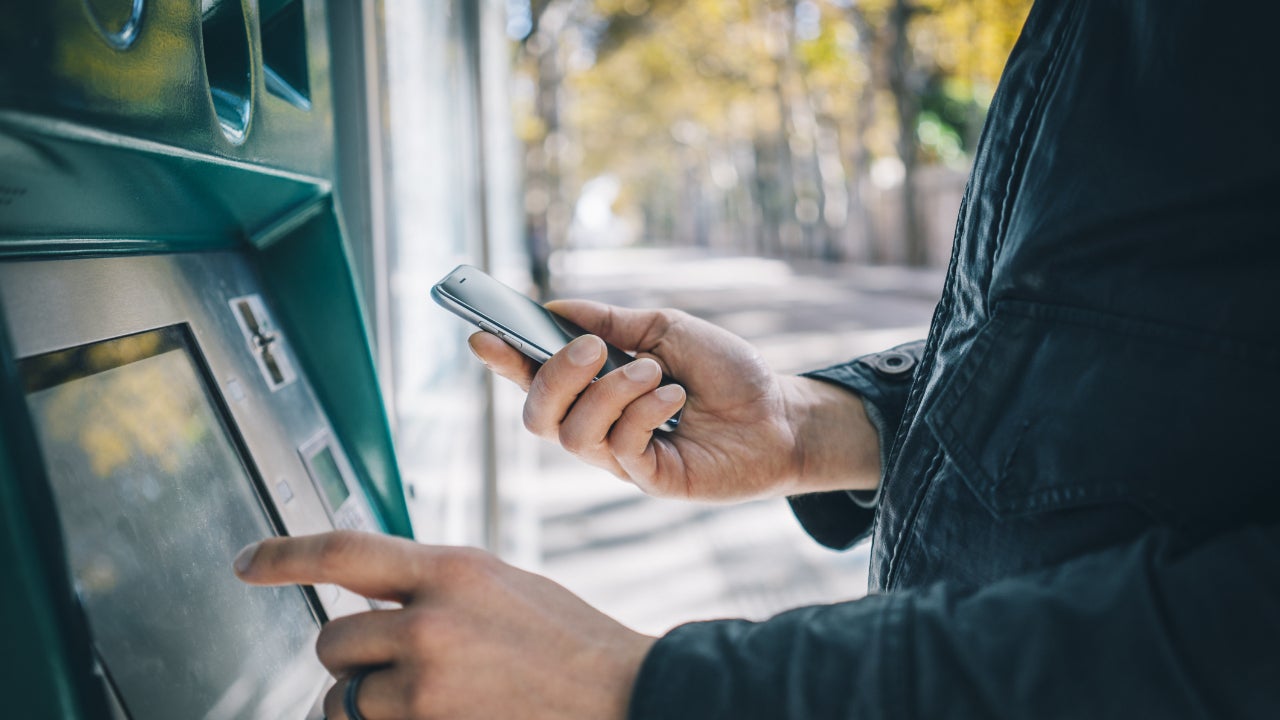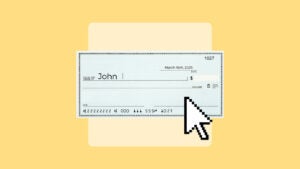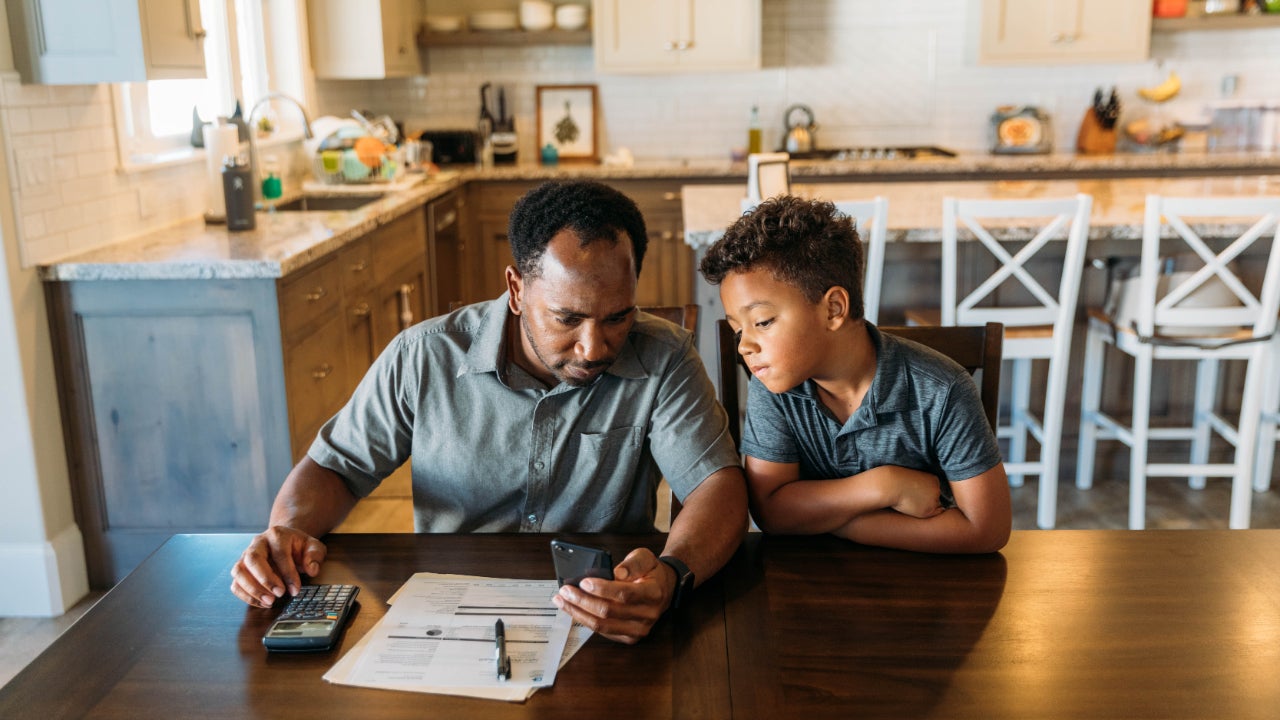What are convenience checks?

Key takeaways
- You can write checks against a line of credit with credit card convenience checks.
- Convenience checks are often processed as a cash advance, which can be expensive.
- It’s a good idea to consider alternatives before using a convenience check to borrow against your credit card.
Have you ever opened a credit card statement only to discover that your credit card issuer had sent you a few blank checks? These checks are called credit card checks — or convenience checks — and you can use them to make purchases, pay off other credit cards or pull cash advances from your line of credit.
Although a number of today’s best credit cards offer checks, it doesn’t mean convenience checks for credit cards are always a good option. Thanks to the fees and interest rates associated with cash advances, writing a convenience check could cost you a lot more money than you anticipated.
We look at how credit card convenience checks work, where you can cash them, its potential drawbacks, how it might affect your credit score and alternatives to consider instead.
What is a credit card convenience check?
A credit card convenience check is a blank check received with your credit card that you can use as a personal check. The money comes out of the line of credit associated with your credit card. To make a purchase with a convenience check, you simply make the check out to the merchant for the amount of your purchase and sign it. If you want to get cash for yourself, you can write the check to yourself and cash it anywhere you would cash a personal check.
How to get credit card convenience checks
Whether you can use a convenience check depends on your credit card issuer. Some card issuers regularly send cardholders convenience checks in the mail — for example, with your monthly statement. Other card issuers offer these checks periodically and only to cardholders with good credit. To request a convenience check from your issuer, call the number on the back of your credit card.
How to use a convenience check for a credit card
Credit card convenience checks function almost exactly like personal checks and can be used wherever checks are accepted. This means you can fill out a convenience check to pay rent, make a utility payment or send money to friends and family.
However, convenience checks can be expensive. Unlike a personal check, the amount of a convenience check is often deducted from your credit card in the form of a cash advance. You’ll almost always pay a cash advance fee on each check — typically 3 percent to 5 percent of the check amount — and the amount you borrow might be cashed against a cash advance limit that’s lower than your typical credit limit.
How to cash a convenience check
You can cash a credit card convenience check anywhere you can cash a personal check, including bank branches and check-cashing services. If you receive a convenience check from someone else, it’s a good idea to wait for the check to clear before you spend the money. In some cases, a credit card company can refuse to honor a convenience check, especially when the check puts the account holder over their credit limit.
Waiting for convenience checks to clear also helps you avoid becoming the victim of banking scams or credit card fraud.
How long does it take for a convenience check to clear?
In general, it takes two or three business days for a check to clear — and that applies to credit card convenience checks, too. Both the bank and the credit card issuer need time to confirm that the check is legitimate and that the account holder has enough credit for the issuer to honor the check. If you need cash immediately, you may be better off requesting a cash advance at an ATM.
Benefits of credit card convenience checks
Convenience checks allow you to access your line of credit in situations where credit cards are not accepted. If you need money to pay rent, for example, your landlord might not accept a credit card, but you should be able to use a convenience check to make the payment.
Convenience checks also allow you to access cash in situations where you can’t use your debit card or checking account. If you need cash quickly but don’t have the money in your bank account, you could write yourself a convenience check and cash it just like you would a personal check.
You can even use a convenience check as a way to pay a credit card with a credit card. Most credit card issuers won’t let you pay your credit card bill with a convenience check from the same issuer — in other words, you can’t use a Capital One convenience check to pay off a Capital One credit card — but you could use a convenience check to pay a credit card bill with a different issuer.
But if you find yourself unable to pay your credit card bills without withdrawing money from another credit card, it might be time to start looking into credit card debt resources.
Drawbacks of credit card convenience checks
Convenience checks work like cash advances — which means they usually include advance fees, higher interest rates and stricter penalties around repayment. The average credit card APR is around 20 percent, but convenience checks can have APRs of 30 percent or more.
A huge drawback of convenience checks is that they don’t come with grace periods as credit card charges do. Instead, the amount of your convenience check begins accruing interest as soon as you use it. If you’re unable to repay the balance in full immediately, steep interest charges can add up fast.
There are typically no restrictions in place to prevent you from writing a convenience check that puts you over your credit limit. Your cash advance credit limit might also be lower than your total credit limit, so keep that in mind as you use convenience checks. If you go over your credit limit with a convenience check, you may pay penalties like fees and even higher interest rates.
To minimize the cost of a convenience check, avoid using these checks to pay off large amounts, and repay what you borrow as soon as you can.
Do credit card convenience checks affect your credit score?
While using a convenience check won’t necessarily affect your credit score, defaulting on your card payments will hurt your score. Also, taking out more than your available credit and increasing your credit utilization typically affects your score.
Make sure when using convenience checks that you are can pay the amount off which typically includes interest charges and that you are within your credit limit.
Alternatives to convenience checks
If you need access to cash but don’t have the money in your bank account, credit card convenience checks are one option — but you should also consider a few alternatives first to avoid steep interest rates and fees. Instead of using a convenience check, you can:
Apply for a balance transfer credit card. The best 0 percent interest credit cards offer a year or more of no interest on new purchases, allowing you to use your cash to cover bills and rent while putting groceries and other essentials on credit. If you can pay at least your minimum each month and clear your balance before the introductory APR expires, you can save a lot on interest.
Consider a personal loan. Interest rates on personal loans are often much lower than cash advance interest rates. And you aren’t limited as to how you can use the money you borrow. Get started with our guide to qualifying for a low-interest personal loan.
Borrow money from family or friends. You just might know someone who is able to help you out at a lower cost than convenience checks. Just make sure you agree on a repayment plan, and do your best to stick to it.
Earn extra cash. Nearly 40 percent of Americans have a side hustle, according to a 2023 Bankrate survey. Whether you start your own business or sign up with a service like Uber or DoorDash, earning a little extra money could be the solution to your cash flow problem. See our list of the 10 best side hustles to get started.
The bottom line
While credit card convenience checks can be helpful in a pinch, they can cost you more money than you bargained for. Carefully read the terms and conditions of your card to understand the fees and interest you’ll pay. And look into less costly alternatives before you write a check that lets you borrow money from your credit card.
If you’re having trouble making ends meet, a low-interest credit card could help you bridge the financial gap. You may also want to contact your credit card issuer and request a lower interest rate on your existing cards. There are also many reputable financial resources that can help you balance your budget, pay your bills and get your finances back on track.
Why we ask for feedback Your feedback helps us improve our content and services. It takes less than a minute to complete.
Your responses are anonymous and will only be used for improving our website.






